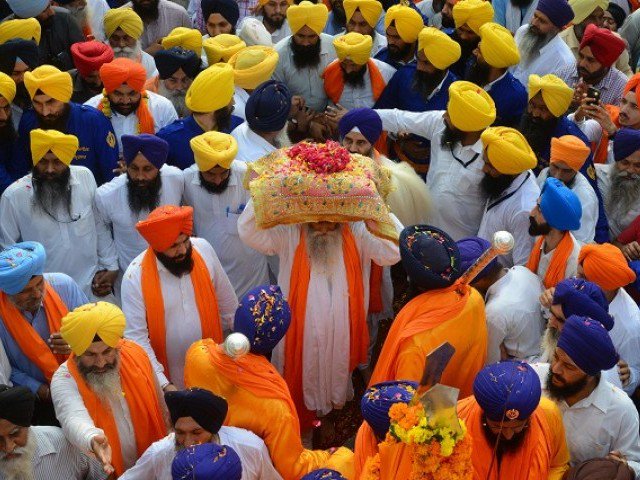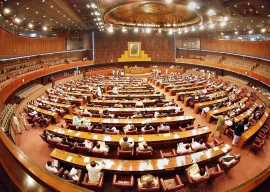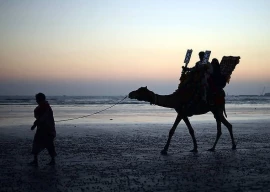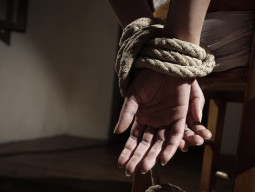
Some of the greatest contributors to literature from South Asia were taken care of by the Mughal court. Freed from the chains of concepts such as working to survive or being responsible for dependants, these writers, poets and historians produced a rich, literary collection that we proudly call our heritage.
Calls for such state patronage invoke much debate today. Those in favour of the state’s patronage of artistes argue the importance of arts and culture in a society. In the cases of Roohi and Munna, their contributions to Pakistan’s television history are irreplaceable. The legacy of these two stars is not in question. The issue seems to be whether these achievements warrant government support.
A popular objection is that artistes today cannot be compared with those of yesteryear because of the role money has come to play. Modern day artistes are extremely well compensated — media rights, sponsorships, product endorsements and personal ventures, to name a few. Thus, the onus of managing one’s own finances lies with the artiste.
This is a sound, rational argument but contextualising it to Roohi and Munna does not do justice. Both Roohi and Munna shot to fame due to their affiliation with shows on the Pakistan Television Corporation, a state-run entity. Up until the early 2000s, a career in the television industry was nowhere as lucrative as its bigger screen counterpart.
Another important question that arises is the issue of whom to patron? So far, the case on our hands has been simplistic because both Roohi and Munna are popular television stars. Increasing privatisation has resulted in a record number of productions starring Pakistanis in documentaries, television serials and movies. Defining patronage could be hazardous over a long period of time. It has the ability to drive people to and from an industry. Patronage is often accompanied by inefficiency and while the artistes from the days of Mughals produced breathtaking works in different genres despite guaranteed sustenance, what they would have done under more competition remains speculative.
A viable alternative often presented is that the state should recognise, and not necessarily patronise, artistes. In theory, this presents the artistes with a target to aspire to without draining the resources of the state. However, as a nation, we have a poor track record of identifying our artistes. N M Rashid, considered the father of progressive Urdu poetry, was laid to rest in England because he opted to be cremated rather than buried. His contributions were more than just literary — he served as Pakistan’s ambassador to the United Nations. Similarly, some of our most famous poets like Faiz and Jalib spent their better days in jail for voicing their opinions against the incumbent governments.
Extreme care should be taken not to be dismissive of the unique problems faced by both Roohi and Munna. In a country where we constantly bemoan the lack of national assets, let us start by supporting the ones we already have.
Published in The Express Tribune, July 26th, 2013.
Like Opinion & Editorial on Facebook, follow @ETOpEd on Twitter to receive all updates on all our daily pieces.
COMMENTS (12)
Comments are moderated and generally will be posted if they are on-topic and not abusive.
For more information, please see our Comments FAQ













1713509570-0/Taylor-Swift-Album-Release-(1)1713509570-0-270x192.webp)
























@PakArmySoldier: Why you people are getting pension then? It is not like you won any thing.
@PakArmySoldier: Pakistan Army also does its job, so why should they get subsidies from the government for buying cars, schooling and health?
It is true that artists are often emotional and impulsive, making them poor managers of money. They are very often taken for a ride because they are not legally literate and few sign water tight contracts that can protect their interests. There are many cases where the artists works win appreciation and prices skyrocket, long after the artist is dead and gone. Many artists also squander their money on alcohol and women, their families often surviving on a pittance. More than the State I think it is the obligation of fellow artists to help out another in need.
Why is ET having the same article by the same author on their site twice...with different formatting and headlines these days ??
@Optimist: In the west, they have a social security net, so the media wouldn't need to go ask old people how they're faring.
No where in the world artists are given preferential treatment. In the UK, an artists gets same benefits as other poor people, same pension as other ordinary people. Artists have lavish lifestyles and are not good with savings. If some poor artist can be helped, why not other poor? . Instead, we should introduce some medical insurace and govt can pay insurance premium for the very poor and needy. Govt cannot pay whole treatment of people that could be millions of rupees. . If we stop piracy, it could help our artists too get streams of income for very long time.
Also, when artists are very sick and dying, their pictures are shown on tv, magazines. Can Pakistani media follow the example of western media and refrain from showing sad faces of dying artists? In the west, we only hear news of an artist who died. Nobody goes to their hospital bed and show pictures where they are sad pieces of bones!
It is true that artists are not good at managing their money. They are just too much involved in art. Those good with money are usually second rate artists. . It is also true that the govt doesn't have money to splash on anyone (our debt is too high). . We cannot be emotional when we are talking about finances. Sick artists need millions of rupees (almost) every year. Even in the UK, all citizens get equal teatment. Artists don't get extra benefits. Same principle should be applied in Pakistan too. Are ordinary citizens getting help with medicines? . Only solution I can think of is to introduce medical insurance and encourage people to join that. For very poor people, govt should pay for that medical insurance. In case of artists, medical insurance should be compulsory as we know this group doesn't have any work guaranteed and could run into financial troubles more often.
@ author
artists are known to have lavish lifestyles. Do you think Pakistan's poor (money from their taxes) can support them?
A very informative write up. Just one small correction! Rashid sahab was never Pakistan's Ambassador to the United Nations, although he served the United Nations for many years, on assignments in several countries. Probably the scribe has mixed his association with the United Nations with that of Pitras Bukhari's, who was Pakistan's first Ambassador to the United Nations and represented his country with great distinction and honour.
Rubbish. These people offered a service and got paid for it. It is not public's responsibility to help them out. They should have better managed their budgets.
What to talk of Roohi Bano, even Prof Abdus Salam got a raw deal from Pakistan. Just other day I watched Roohi Bano talking to some TV journalist. She still has great acting talents. I am sure her acting talents can be utilized. I am sorry to say, Pakistani society is not good enough to take care of such talented people. I have seen the fate of many talented Pakistanis. Pakistan has not developed state institutions to look after such talented personalities. Compare this to India. Late Bismillah Khan expressed the desire to perform in front of Indian parliament . Not only his wishes were accepted, entire performance was broadcast live on all the TV channels. There are parliament seats reserved for players and artists. Prominent artists are provided free government accommodation. I wish someone in India takes note of Roohi bano and makes use of her amazing acting talents. She is at par the best when it comes to acting.